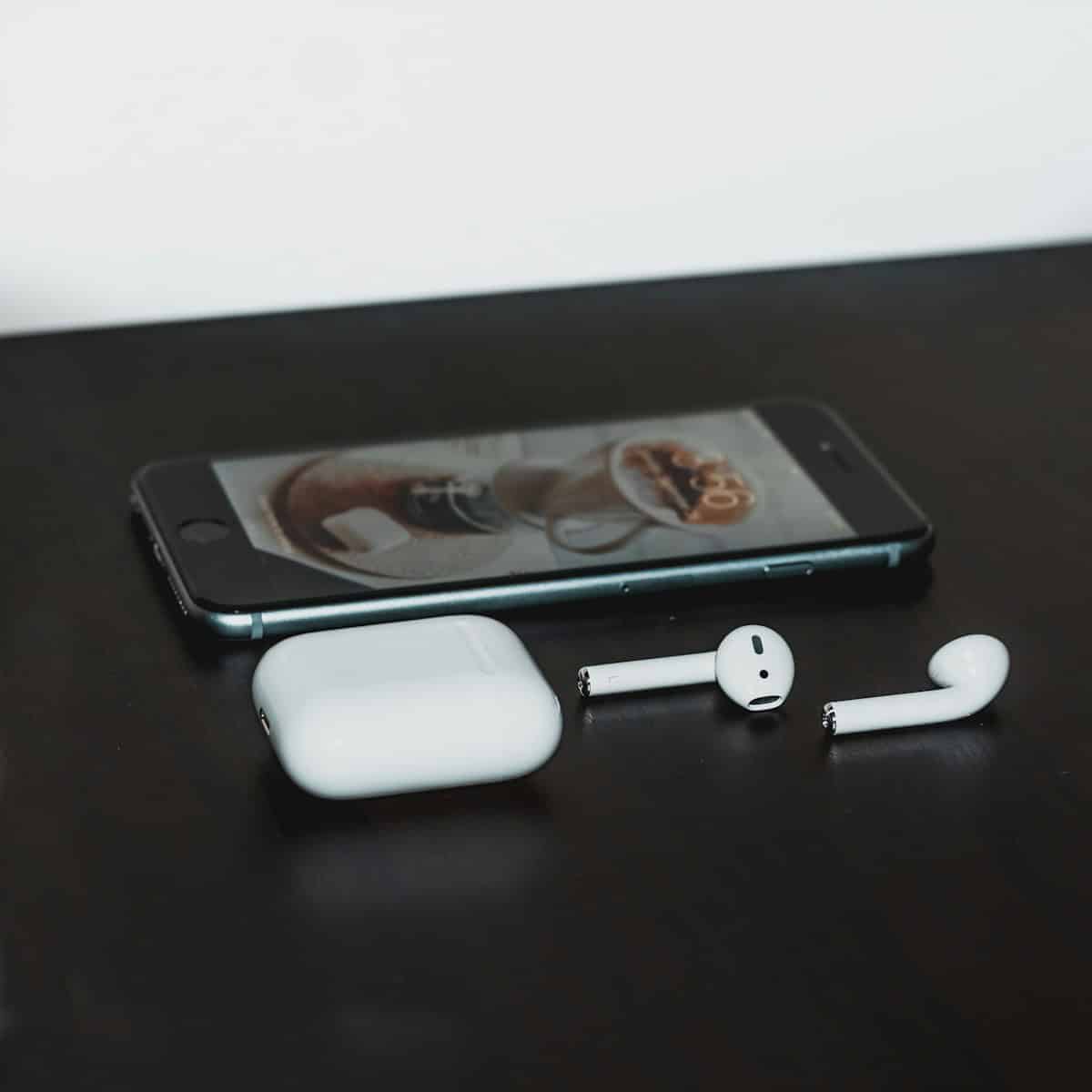AirPods are popular for their seamless connectivity, especially among iPhone, iPad, and Mac users. They are designed to connect automatically, providing a smooth audio experience. However, sometimes users may face issues where AirPods do not connect as expected. This can be due to various reasons ranging from minor glitches to incorrect settings that need adjustment. Troubleshooting these issues often starts with simple steps such as checking the Bluetooth settings on the device or ensuring the AirPods are charged and within range. In some cases, users may need to delve into more detailed settings, including the system settings on their Mac or the Bluetooth details on an iPhone. By performing a series of logical checks and adjustments, users can typically resolve the connection issues. Resetting the AirPods can also be an effective solution. This involves holding the setup button on the AirPods case for a few seconds until the status light indicates the reset process has begun. After a reset, re-pairing the AirPods with the device usually restores the automatic connection functionality.
Troubleshooting AirPods Connection Issues
Common Reasons for AirPods Not Connecting Automatically
- Bluetooth Interference: Other Bluetooth devices nearby can disrupt the connection.
- Low Battery: AirPods or the charging case might have insufficient charge.
- Outdated Firmware: Older firmware versions can cause connectivity problems.
- Dirty Sensors: Dirt or debris on the AirPods’ sensors can prevent them from detecting when they’re in your ears.
- Software Glitches: Temporary bugs in iOS or iPadOS can affect Bluetooth functionality.
Troubleshooting Steps
| Step | Instructions |
|---|---|
| 1. Check Bluetooth Connection | Ensure Bluetooth is enabled on your device and that your AirPods are selected as the audio output. |
| 2. Charge Your AirPods | Place both AirPods in the charging case and let them charge for a few minutes. |
| 3. Restart Your Device | Turn off your iPhone or iPad, then turn it back on. |
| 4. Reset Your AirPods | With the AirPods in the case, open the lid. Press and hold the setup button on the back until the status light flashes amber, then white. |
| 5. Update Firmware | Go to Settings > Bluetooth, tap the “i” next to your AirPods, and check for available firmware updates. |
| 6. Clean Your AirPods | Gently wipe the AirPods and their charging case with a dry, lint-free cloth. |
| 7. Forget and Re-pair | In Bluetooth settings, tap the “i” next to your AirPods, then “Forget This Device.” Re-pair them by following the on-screen instructions. |
| 8. Contact Apple Support | If none of the above steps work, seek assistance from Apple Support for further diagnosis and potential repair options. |
Additional Tips
- Avoid using your AirPods in areas with high electromagnetic interference.
- Keep your AirPods’ software and your device’s operating system up-to-date.
- Consider resetting your network settings if the problem persists.
- If you have multiple Apple devices, ensure your AirPods are connected to the correct one.
Please note that the specific steps and options may vary slightly depending on your device model and iOS/iPadOS version.
Troubleshooting AirPods Connection Issues for Different Devices
iPhone Troubleshooting
- Check Bluetooth: Ensure Bluetooth is ON and your AirPods are the selected audio device.
- Charge AirPods: Place both AirPods in the case and charge for a few minutes.
- Restart iPhone: Turn your iPhone OFF and then ON again.
- Reset AirPods: With AirPods in the case, open the lid. Press and hold the setup button on the back until the status light flashes amber, then white.
- Update Firmware: Go to Settings > Bluetooth, tap the “i” next to your AirPods, and check for updates.
- Clean AirPods: Gently wipe AirPods and case with a dry, lint-free cloth.
- Forget and Re-pair: In Bluetooth settings, tap the “i” next to your AirPods, then “Forget This Device.” Re-pair by following instructions.
Android Phone Troubleshooting
- Check Bluetooth: Ensure Bluetooth is ON and your AirPods are connected.
- Charge AirPods: Place both AirPods in the case and charge for a few minutes.
- Restart Phone: Turn your Android phone OFF and then ON again.
- Reset AirPods: Same process as for iPhone (see above).
- Clear Bluetooth Cache: Go to Settings > Apps > Bluetooth, then clear cache and data.
- Forget and Re-pair: In Bluetooth settings, find your AirPods and tap “Forget.” Re-pair them.
Mac/MacBook Troubleshooting
- Check Bluetooth: Ensure Bluetooth is ON and your AirPods are selected as the output device in System Preferences > Sound.
- Charge AirPods: Place both AirPods in the case and charge for a few minutes.
- Restart Mac: Restart your Mac/MacBook.
- Reset AirPods: Same process as for iPhone (see above).
- Reset Bluetooth Module: Go to System Preferences > Bluetooth and click “Turn Bluetooth Off.” Hold Shift + Option keys and click “Turn Bluetooth On.”
- Forget and Re-pair: In Bluetooth settings, find your AirPods and click the “x” button. Re-pair them.
iPad Troubleshooting
Follow the same steps as for iPhone troubleshooting (see above).
Additional Tips
- Avoid high electromagnetic interference areas.
- Keep AirPods’ and device’s software up-to-date.
- Reset network settings if the problem persists.
- If you have multiple Apple devices, ensure AirPods are connected to the correct one.
Please note that the steps might slightly vary depending on your device model and OS version.
Key Takeaways
- AirPods can fail to connect automatically due to various settings or glitches.
- Checking connections and settings is often the first step in troubleshooting.
- Resetting and re-pairing AirPods can restore their automatic connectivity.
Troubleshooting Connection Issues
When AirPods fail to connect automatically, certain steps can quickly resolve the issue. This advice applies to iOS, iPadOS, and macOS devices.
Initial Checks for Connectivity
Firstly, verify your AirPods are charged and within range of your device. Open Settings then select Bluetooth to check if Bluetooth is on. If AirPods are listed but not connecting, tap Forget This Device. Restart your device and attempt to pair your AirPods again.
Resetting and Pairing Processes
To reset, ensure your AirPods are in their case with the lid open. Press and hold the setup button at the back until the light flashes amber then white. This signifies a successful reset. After that, place your AirPods next to your device and follow the on-screen instructions to pair them.
Advanced Troubleshooting Steps
If problems persist, look for the latest software update for your device in Settings > General > Software Update. Install any available updates for optimal performance. In rare cases, firmware issues might prevent proper function, which could require you to contact Apple Support for further assistance.
Optimizing AirPods Performance
Making your AirPods work best involves simple steps for device care, correct settings, and understanding compatibility. This section guides you through optimizing your AirPods for reliable connectivity and performance.
Ensuring Compatibility and Usage
Apple AirPods need the right software to connect smoothly. They work with iPhones, iPads, Macs, and Apple Watches. Make sure your device runs the latest iOS, iPadOS, macOS, or watchOS version. To update, open the Apple menu on your Mac or the Settings app on your iPhone or iPad and follow the prompts to install the latest software.
Caring for Your AirPods
Keeping AirPods clean can prevent many issues. Dirt or lint in the charging ports can interrupt charging and connection. Use a soft, dry, lint-free cloth to clean your AirPods and the charging case. Check the charge status to ensure they’re ready when you need them. A fully charged case extends the battery life and keeps your AirPods working longer.
Advanced Features and Settings
Your AirPods come with features like Automatic Ear Detection that you can manage in the Bluetooth settings. When enabled, AirPods sense when they’re in your ears and route audio accordingly. If one or both AirPods aren’t working, turning Bluetooth off and on can sometimes fix the issue. Do this through the Control Center or the Settings app.
Alternative Solutions and Support
When AirPods don’t connect, a full reset sometimes helps. Press and hold the setup button on the back of the charging case for about 15 seconds. The status light should flash amber, and then white. If you still face problems, contact Apple Support. They can assist with hardware issues and provide tailored solutions for your specific model number.







